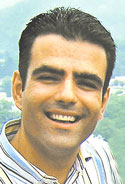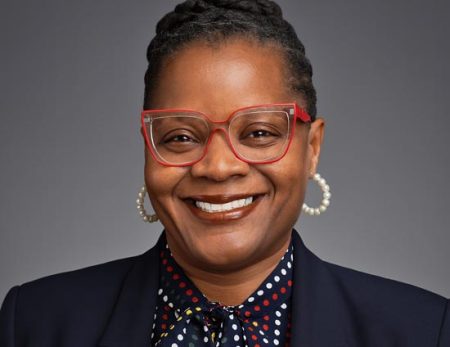Esteve Coll-Larrosa
 |
| Esteve Coll-Larrosa Photo by Renato Rotolo |
Esteve Coll-Larrosa is a man with a financial plan. He maintains an
extroverted goal of instructing community members of their financial
rights and risks.
By Adam Hillberry
Coll-Larrosa graduated from UNC Asheville in 2000 with B.A. in economics. He is bilingual and has a background in banking from Spain and California. Through his work with the United Services Credit Union, he instructs members of the Hispanic community with their financial needs.
“When I started with the credit union, my main responsibilities were to cover all departments as needed and also put a focus on finding inroads to the credit union for the Hispanic community. We realize the Hispanic community is growing fast in North Carolina and to provide decent financial services to the community is the reason why I was hired,” Coll-Larrosa said.
The most important aspect of his job is the ability to serve the community with financial education, according to Coll-Larrosa.
“One of the
pillars of the credit union movement is financial education,”
Coll-Larrosa said. “In providing financial education and targeting this
to Hispanics and the large Slavic, Ukrainian and Philippino communities
and listening to concerns coming from those attending the seminars is
how we come up with new programs to serve them better.”
The credit union
provides seminars on credit reports, how to read your credit, what it
means, how to improve it and what affects your credit, managing your
checking account, loans, IRAs and home buying.
Many Hispanics
get high interest rates, and in North Carolina, there is a law
restricting any institution to charge more than 18 percent on any
loans, according to Coll-Larrosa.
“Especially
Hispanics with the knowledge barrier, not knowing the process, it’s
easy to become a victim of dealerships. We were refinancing loans for
people that were paying 25 or 30 percent interest rates,” Coll-Larrosa
said.
Many Hispanics find help through the credit union by requesting a way to pay income taxes, according to Coll-Larrosa.
“One of the
procedures established to slowly help people transition into a more
traditional financial system was through assisting those who requested
the process of applying for the Individual Tax Identification Number.
It’s a number that is issued by the IRS. It has the same format as a
Social Security Number,” Coll-Larrosa said.
The IRS issues this number for people who don’t qualify for a SSN but make an income and pay taxes, according to Coll-Larrosa.
“It’s not a work
permit and it doesn’t authorize them to stay or travel and legal
residents may have to have this number. The IRS doesn’t look at the
legal status when they issue this number. Only you work in the country
and you pay taxes.”
The credit bureaus give number holders a credit using this number, according to Coll-Larrosa.
“We would see
somebody coming to the office without credit and without any type of
credit history in the United States apply for this number. Then, we can
make a sure, secure loan in which they deposit money into a savings
account,” Coll-Larrosa said. “This money is pledged for the loan and we
make them a loan on the same amount. This way we can report they are
making payments on their loan and that gives them credit.”
Establishing
credit this way places them into a more traditional financial system
and allows the application for more products and to refinance their
high-interest car loans. However, the process takes time, according to
Coll-Larrosa.
Last year,
Coll-Larrosa was presented the Francine M. Delany Alumni Award for
Service to the Community for dedication to educating and supporting the
Spanish-speaking communities of neighboring counties by volunteering to
teach about financial rights, according to the UNC Asheville Web site.
Coll-Larrosa says the flags hanging above the lobby in the credit union represents the welfare of everyone in the community.
“The flags we
have displayed represent members who come from those countries. We get
a lot of positive comments from people who walk into the office and see
their flag and feel a little more recognized,” Coll-Larrosa said.








